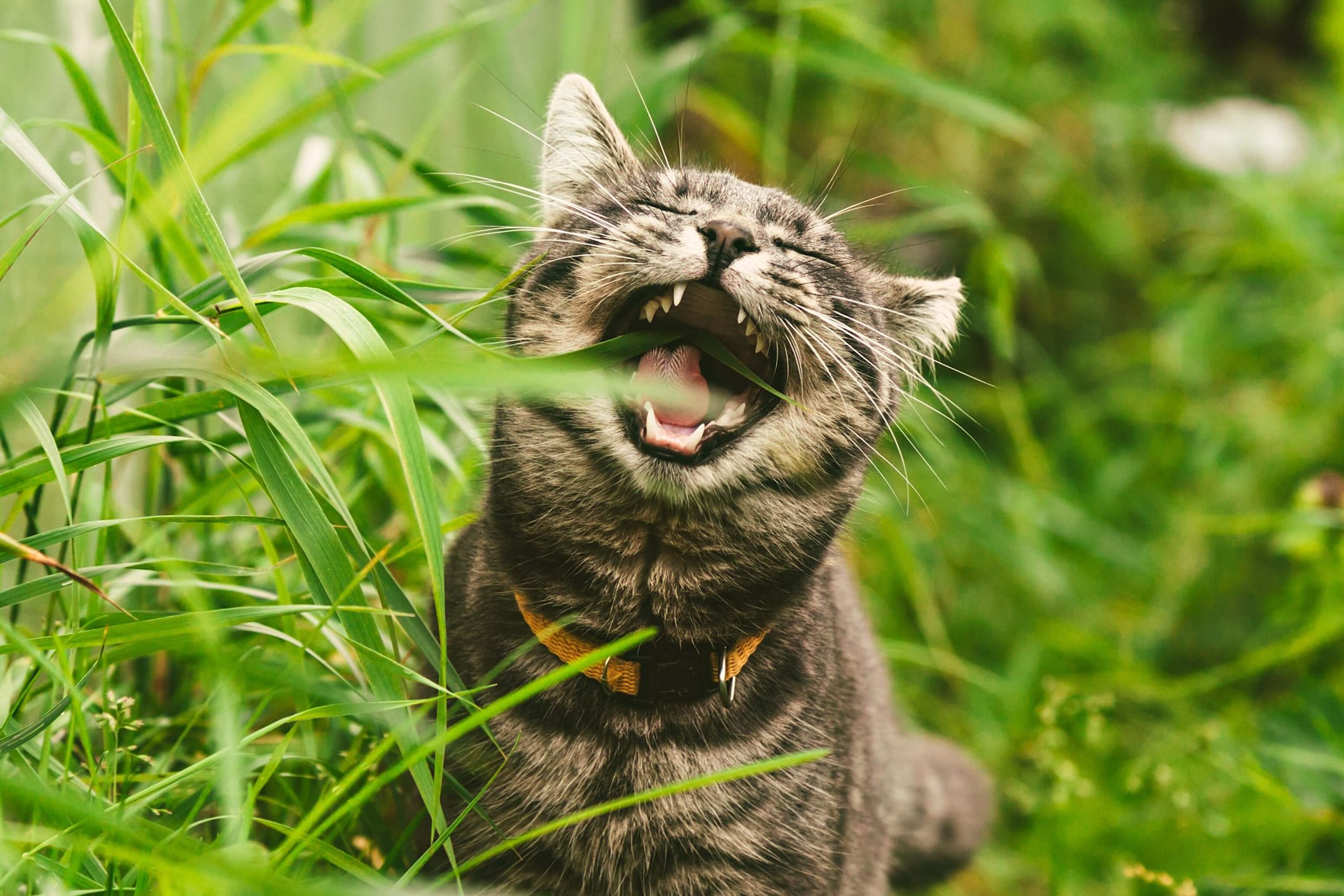
Helping to Manage Chronic Kidney Disease in Dogs and Cats
November 19th 2020
Chronic kidney disease is unfortunately a problem in cats and dogs we see all too frequently and at our Vet’s Klinic we help many pets and their owners to manage this difficult news.
The kidneys are essential for filtering waste products into urine and for water and electrolyte (essential salt) balance along with the regulation of certain hormones. This article touches on the causes, diagnosis and treatment options available to you and your canine or feline friend.
What is Chronic kidney disease and what are the signs?
Kidney disease (also known as renal disease or renal failure) comes in two forms, acute or chronic. Acute kidney disease is often due to toxins, usually accidental poisoning by ingestion of antifreeze/medications, or from diseases, such as leptospirosis (which can be vaccinated against). The symptoms will appear suddenly, over a couple of days. These can sometimes be treated, although the effects on the kidneys may not be fully reversed, depending on how quickly treatment is sought.
Chronic kidney disease (CRF) is fairly common, and mostly seen in older/senior animals, which we class as animals over 8 years of age. Chronic Kidney disease is more common in cats than dogs and is often secondary to other conditions, such as hyperthyroidism. However, it is estimated that 1 in 10 dogs will also suffer from this disease.
It has a slower progression than acute kidney disease and builds up over time. There are several possible causes, and signs are often hard to spot initially, as they are not visible until 75% of the kidney function has already been lost. The main signs of chronic kidney disease are:
If your pet is showing any of these symptoms, you should go and see your vet.
Causes
There are many different causes for the loss of kidney function and often it is impossible to tell the original causative factor. To simplify it into three categories, there are causes before, in, and after the kidneys which can lead to damage to their damage:
All of these processes result in varying degrees of damage to the kidneys and loss of function. This then leads to a build-up of waste products, and reduced regulation of water balance, electrolytes and certain hormones such as parathyroid hormone which is involved in calcium regulation and erythropoietin which is the hormone that stimulates red blood cell production. Dental disease can also have an impact on the kidneys, as bacteria in the mouth can enter the bloodstream and attack the kidneys.
The vet can have a look at your pet’s teeth and gums and assess if they will require a dental procedure called a scale and polish, and possible extractions of rotten teeth. However, this does have risks if the pet does already have kidney problems, as the anaesthetic and drugs used in the procedure could worsen the problem.
The vet will go through the pros and cons with you, but ultimately a rotten, bad mouth is not curable by antibiotics alone, so an anaesthetic and corrective dental treatment is usually needed.
How is Chronic Kidney disease diagnosed in cats and dogs?
If kidney disease is suspected, your vet will usually start the diagnosis by doing two tests, one using a blood sample and one using a urine sample from your pet. Blood samples can usually be tested in-house (at the surgery) although vets may also send blood to an external lab for further extensive testing.
Urine can be collected by taking your dog for a walk and catching a sample in a sterile dish. Urine is also sometimes taken by ‘cystocentesis’ where a needle is inserted into the bladder through the abdominal wall and urine drawn off in a syringe. When a cat or dog has evidence of renal failure the blood sample will show higher than normal levels of waste products (which are not being correctly filtered by the kidneys) such as urea and creatinine in the blood and depending on the stage and severity there may be evidence of dehydration, anaemia and salt/mineral imbalances.
The changes seen in a urine sample when the kidneys are starting to fail is that the urine is more dilute than it should be and often there might be traces of protein present. Further testing is beneficial to look for the original cause of the kidney failure as in some cases there may be further treatment options arising from this. Ultrasound scans, urine culture, blood pressure measurement, regular blood monitoring of potassium, phosphate, calcium, urea and creatinine and checking for protein loss in the urine are all options for monitoring and developing and adapting treatment plans.
The International Renal Interest Society (1) have specific guidelines on staging and treating renal disease. Treatment options will depend on which stage of kidney/renal disease your pet has.
There are many different causes for the loss of kidney function and often it is impossible to tell the original causative factor.
How is Chronic Kidney disease treated in cats and dogs?
Sadly, chronic kidney disease is a progressive and terminal disease and as such treatment is palliative and revolves around reducing the workload of the kidneys and preventing further damage and treating any consequences as they arise. Unfortunately, kidney transplants are not readily available for animals in the UK and are cost prohibitive, so this is not an option at present.
Animals with kidney disease, chronic or acute, will benefit from intra-venous fluids, to rehydrate them and correct their salt imbalances. This may be done over the course of a few days to weeks, depending on the severity, in the vet hospital. Sometimes the vet will recommend the owner to give fluids sub-cutaneously (under the skin) at home in the long-term.
Some animals can feel sick, and medications can be given to stop the nausea and stimulate appetite, and then they can be tempted to eat. Diet is very important, and a special kidney or renal diet is required. These diets restrict phosphate and sodium and contain high energy with restricted high-quality protein. Additionally, studies show that a reduced phosphorus diet as opposed to a normal pet food, can increase the life span of a dog or cat with renal failure significantly (3).
Management of vomiting, inappetence, high blood pressure and phosphate and potassium levels and anaemia may all be required. A useful resource for treatment options in cats is provided by International Cat Care (2).
What can you do?
Regular blood or urine tests are also a useful way to pick up early kidney disease, but these will not flag up a problem until over 60% of kidney function has been lost, and not all dogs and cats cooperate with this! Some vet practices, such as offer senior cat MOT health checks which include a blood test to check kidney function and can give you kits to collect urine samples from the litter tray and bring back to us for testing.
Providing adequate hydration – this may involve you giving fluids under the skin if the vet has directed. Plenty of fresh water in different bowls or even water fountains or running taps, which can encourage drinking. It could be tempting, if your pet is urinating more and possibly in the house, to withhold water, but this is not advised and will worsen the condition of the kidneys.
Feeding the correct diet ensuring you pet eats regularly, this is usually with a prescription kidney diet which is lower in sodium, phosphorus and high-quality protein, and comes in wet or dry varieties.
Ensuring medications are given regularly and correctly if they have been advised by the vet.
Unfortunately, chronic kidney disease cannot be cured, but the progression can be slowed with the correct management of diet and medications, and the patient can usually live for a few months to years depending on the severity, and the commitment of the owner.
References
1. http://www.iris-kidney.com/
2. http://icatcare.org/advice/cat-health/chronic-kidney-disease-cats
3. Fascetti, A.J and Delaney, S.J (2012) Applied Veterinary Clinical Nutrition, Chichester: Wiley Blackwell.
Photo by Alexander B on Unsplash

 Shop Dog
Shop Dog
 Shop Cat
Shop Cat
 Vet Know-how
Vet Know-how Contact
Contact


